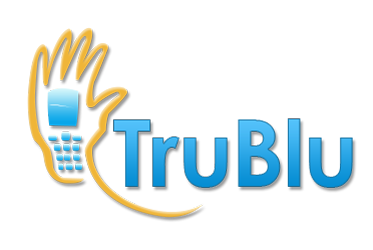Platforms have become a crucial aspect of web design and development, social media, and e-commerce. In this article, we will explore some of the most common types of web platforms in each of those three areas.
Table of Contents
ToggleUnderstanding Platforms
What Are Platforms?
Platforms are digital environments that connect different groups and derive benefits from others participating in the platform. They are the nucleus of all systems and allow you to connect all your favorite tools seamlessly using integrations. Platforms can be used for various purposes, including social media, e-commerce, and website development.
Types of Platforms
There are different types of platforms, each with its unique advantages and disadvantages. Here are the six main types of platforms:
- Website Platforms: In the context of a business website, a web platform gives a business owner the ability to convey their message in the most effective way. When used effectively, this platform can convey the business branding and services in a way that persuades someone to become a customer!
- Social Media Platforms: These platforms allow users to connect and share content with others. Examples include Facebook, Twitter, Instagram, and LinkedIn.
- E-commerce Platforms: These platforms allow businesses to sell products and services online. Examples include Amazon, eBay, and Shopify.
- Software Development Platforms: These platforms provide tools and resources for developers to create software applications. Examples include GitHub, Bitbucket, and SourceForge.
- Cloud Computing Platforms: These platforms provide access to computing resources over the internet. Examples include Amazon Web Services, Microsoft Azure, and Google Cloud Platform.
- IoT Platforms: These platforms enable the development and management of Internet of Things (IoT) devices. Examples include AWS IoT, Microsoft Azure IoT, and Google Cloud IoT.
Each platform has its own set of pros and cons, and it’s essential to choose the right platform based on your needs and goals. For instance, social media platforms can be great for building brand awareness and engaging with customers, but they may not be the best choice for selling products online. On the other hand, e-commerce platforms can be great for online sales, but they may not provide the same level of social engagement as social media platforms.
In conclusion, understanding platforms is crucial for businesses and individuals looking to leverage digital tools and technologies. By choosing the right platform for your needs, you can maximize the benefits and minimize the drawbacks of the digital world.
Web Platforms for Business
With regard to platforms for business websites, there are a few options. One popular choice is Squarespace, which offers a user-friendly interface and beautiful templates. Another option is Wix, which provides a drag-and-drop website builder and a wide range of features. Shopify is a platform that is specifically designed for e-commerce businesses, with features such as inventory management and payment processing.
WordPress Designer
However, at TruBlu Consulting, we specialize in WordPress. WordPress is a content management system that powers 43% of the web. It offers a wide range of features, including customizable themes and plugins, SEO optimization, and e-commerce integration. WordPress is also open-source, which means that it is constantly being updated and improved by a global community of developers.
One of the main advantages of WordPress is its flexibility. It can be used to create any type of website, from small blogs to landing pages to large e-commerce stores. WordPress also offers a high level of customization, allowing businesses to create a unique online presence that reflects their brand. In addition, WordPress is SEO-friendly, which means that it is optimized for search engines and can help businesses rank higher in search results.
At TruBlu Consulting, we are WordPress designers. We have built hundreds of websites on the platform and know all the ins & outs of why it is the best choice for business owners wishing to maximize their presence online.
With WordPress, businesses can create a professional, user-friendly website that is optimized for search engines and designed to drive conversions.
Pros and Cons of Social Media Platforms
Benefits of Social Media Platforms
Social media platforms have become an integral part of our daily lives. They offer a variety of benefits, including:
- Increased connectivity: Social media platforms allow us to connect with friends, family, and people from all over the world. We can share our thoughts, photos, and experiences with others, and stay in touch with people we might not have been able to otherwise.
- Networking opportunities: Social media platforms provide excellent networking opportunities for businesses and individuals. They allow businesses to connect with potential customers and clients, and for individuals to connect with like-minded people in their industry.
- Brand building: Social media platforms are a great way to build a brand and increase brand awareness. By creating engaging content and interacting with followers, businesses can establish themselves as thought leaders in their industry.
- Information sharing: Social media platforms are a great way to share information and keep up-to-date with news and current events. They allow us to access information quickly and easily, and to share it with others.
Drawbacks of Social Media Platforms
While social media platforms offer many benefits, they also have some drawbacks, including:
- Cyberbullying: Social media platforms can be a breeding ground for cyberbullying. People can hide behind anonymous profiles and say hurtful things to others, which can have serious consequences.
- Spread of misinformation: Social media platforms have been criticized for their role in the spread of misinformation. False information can spread quickly on social media, and it can be difficult to separate fact from fiction.
- Addiction: Social media platforms can be addictive, and some people may find themselves spending too much time on them. This can lead to a loss of productivity and can have a negative impact on mental health.
- Privacy concerns: Social media platforms collect a lot of personal data from users, which can be a concern for privacy. Users need to be careful about what information they share and who they share it with.
Overall, social media platforms offer many benefits, but they also have some drawbacks. It’s important to be aware of both the pros and cons before using them.
Pros and Cons of E-commerce Platforms
Advantages of E-commerce Platforms
E-commerce platforms offer a range of advantages for businesses looking to sell their products online. Here are some of the benefits:
- Easy to set up: E-commerce platforms are designed to be user-friendly, making it easy for businesses to set up their online store without any technical knowledge.
- Cost-effective: Compared to setting up a physical store, e-commerce platforms are much more cost-effective, as they don’t require rent, utilities, or staff.
- 24/7 availability: With an e-commerce platform, businesses can sell their products 24/7, allowing customers to shop at any time.
- Global reach: E-commerce platforms enable businesses to reach customers all over the world, expanding their customer base beyond their local market.
- Easy to manage inventory: E-commerce platforms provide businesses with an easy way to manage their inventory, making it simple to add or remove products as needed.
- Marketing tools: Many e-commerce platforms come with built-in marketing tools, such as email marketing, social media integration, and SEO optimization, helping businesses to increase their online visibility.
Disadvantages of E-commerce Platforms
While e-commerce platforms offer many benefits, there are also some drawbacks to consider:
- Limited customization: E-commerce platforms often have limitations when it comes to customization, making it difficult for businesses to create a unique online store.
- Transaction fees: Many e-commerce platforms charge transaction fees, which can eat into a business’s profits.
- Competition: With so many businesses selling their products online, competition can be fierce, making it challenging for new businesses to stand out.
- Technical issues: E-commerce platforms can experience technical issues, such as downtime or website crashes, which can impact sales and customer satisfaction.
- Security concerns: E-commerce platforms can be vulnerable to security breaches, putting sensitive customer information at risk.
Overall, e-commerce platforms can be a great option for businesses looking to sell their products online. However, it’s essential to weigh the pros and cons carefully before choosing a platform that’s right for your business.
Choosing the Right Platform
When it comes to choosing the right platform for your business, it can be overwhelming to decide which one to use. Here are some factors to consider and tips for making an informed decision.
Factors to Consider
- Target audience: Different platforms cater to different demographics. For example, if your target audience is primarily older adults, Facebook may be the best option. If you are targeting a younger audience, Instagram or TikTok may be better.
- Type of content: Different platforms are better suited for different types of content. For example, if you want to share longer-form content such as articles or blog posts, LinkedIn may be better. If you want to share visual content such as photos or videos, Instagram or YouTube may be better.
- Budget: Some platforms require a budget for advertising or promoting your content. Consider your budget and the cost-effectiveness of each platform before making a decision.
- Time commitment: Some platforms require more time and effort to maintain than others. Consider your available resources and the amount of time and effort you are willing to invest in each platform.
Making an Informed Decision
After considering the factors above, it’s important to do your research and gather information about each platform. Here are some tips for making an informed decision:
- Research: Look for case studies, articles, and other resources to learn more about each platform and how it can benefit your business.
- Trial and error: Consider testing out different platforms to see which ones work best for your business. Start with one or two platforms and gradually expand as you see results.
- Analytics: Use analytics tools to track your performance on each platform. This will help you determine which platforms are worth investing more time and resources into.
Remember, there is no one-size-fits-all solution when it comes to choosing the right platform. Consider your unique business needs and goals when making a decision.
Conclusion
In conclusion, each social media platform has its own set of advantages and disadvantages. It is important to choose the platform that best suits your needs and goals. Here are some key takeaways:
- Facebook is a great platform for connecting with friends and family, but it can also be a source of distraction and negativity.
- Twitter is a good platform for staying up-to-date on news and trends, but its character limit can limit meaningful discussions.
- Instagram is a visual platform that is great for sharing photos and building a brand, but its algorithm can make it difficult to reach a wider audience.
- LinkedIn is a professional platform that can help with networking and job searching, but it can also be impersonal and spammy.
- TikTok is a popular platform for short-form videos and can be a great way to showcase creativity, but it can also be addictive and time-consuming.
Remember, it’s important to be mindful of how much time you spend on social media and to use it in a way that is positive and productive. By understanding the pros and cons of each platform, you can make informed decisions about how to use them to best meet your needs.
Frequently Asked Questions
What are the top 5 pros and cons of different social media platforms?
Pros:
- Increased brand awareness
- Cost-effective marketing
- Improved customer engagement
- Access to a large audience
- Ability to target specific demographics
Cons:
- Negative feedback and criticism
- Time-consuming to manage
- Risk of privacy breaches
- Difficulty measuring ROI
- Potential for addiction and distraction
What are the major pros and cons of social media?
Pros:
- Improved communication and connectivity
- Increased access to information and resources
- Opportunity for self-expression and creativity
- Enhanced networking and career opportunities
- Ability to stay connected with friends and family
Cons:
- Cyberbullying and harassment
- Spread of misinformation and fake news
- Risk of addiction and mental health issues
- Privacy concerns and data breaches
- Negative impact on productivity and time management
What are the advantages and disadvantages of different social media platforms?
Each social media platform has its unique advantages and disadvantages, but some common ones include:
Pros:
- Facebook: Large user base, ability to target specific demographics, cost-effective advertising
- Twitter: Real-time updates, opportunity for viral content, enhanced customer service
- Instagram: Highly visual platform, ideal for product marketing, opportunity for influencer marketing
- LinkedIn: Professional networking opportunities, job search capabilities, industry-specific content
- YouTube: High engagement rates, opportunity for video marketing, potential for monetization
Cons:
- Facebook: Privacy concerns, negative feedback and criticism, potential for addiction and distraction
- Twitter: Limited character count, potential for negativity and harassment, difficulty measuring ROI
- Instagram: Pressure to maintain a certain aesthetic, potential for fake followers and engagement, limited link sharing capabilities
- LinkedIn: Limited audience reach, potential for spam and unsolicited messages, difficulty standing out in a crowded market
- YouTube: High competition, difficulty monetizing content, potential for negative comments and feedback
What are the pros and cons of social media for students?
Pros:
- Enhanced communication and collaboration with peers and teachers
- Access to educational resources and information
- Opportunity for creative expression and self-promotion
- Improved research and analytical skills
- Networking opportunities with professionals in their field of interest
Cons:
- Distraction and reduced productivity
- Cyberbullying and harassment from peers
- Exposure to inappropriate content
- Risk of addiction and mental health issues
- Negative impact on social skills and face-to-face communication
What are the advantages and disadvantages of social media presentation?
Pros:
- Ability to reach a large audience
- Opportunity for interactive and engaging content
- Cost-effective marketing strategy
- Improved brand awareness and customer engagement
- Enhanced storytelling capabilities
Cons:
- Risk of negative feedback and criticism
- Difficulty measuring ROI
- Limited attention span of viewers
- Potential for technical difficulties and glitches
- Need for consistent and high-quality content production
What are 3 advantages and 3 disadvantages of social media?
Advantages:
- Improved communication and connectivity with others
- Increased access to information and resources
- Enhanced marketing and advertising capabilities
Disadvantages:
- Risk of privacy breaches and data theft
- Potential for negative feedback and criticism
- Negative impact on mental health and productivity




